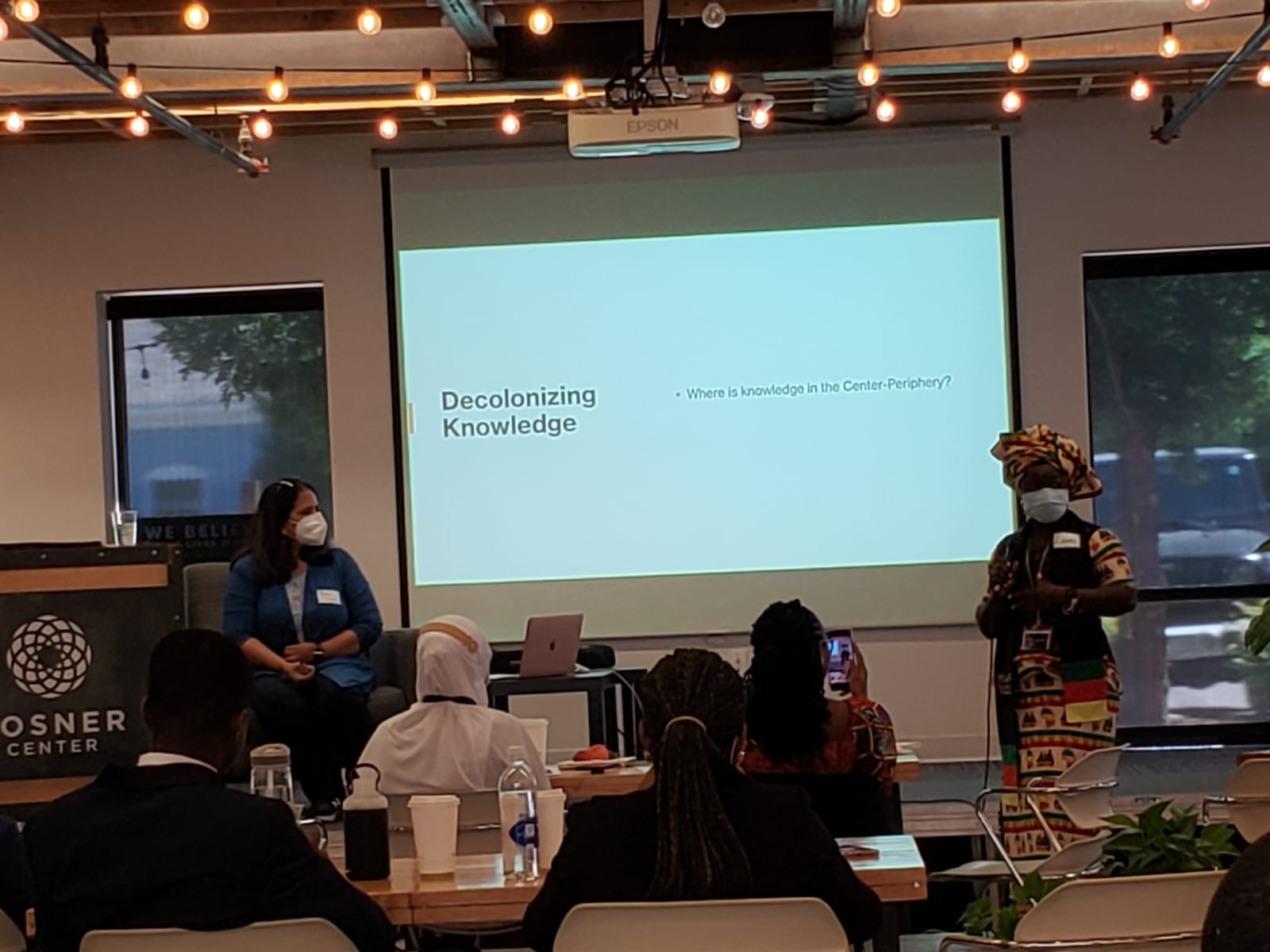 Africa Agenda
Africa Agenda This photo shows some of the Mandela Washington Fellows, with community leaders, engaged in a discussion on Justice, Equity, Diversity, and Inclusion.
DENVER (Africa News Matters) —Since its inception in 2014, the Mandela Washington Fellowship program has seen participation from more than 5000 young African leaders from all countries on the continent. That’s according to the Department of State’s Young African Leaders Initiative (YALI) program website.
The fellowship program, a significant part of YALI, works in collaboration with US colleges and universities toward a six-week leadership institute to build skills in business, civic engagement, and public management for the visiting fellows.
The 2022 program brought 25 Mandela Fellows to the University of Colorado Denver (CU) school of public affairs where they were paired with organizations in academia and the non-profit world for an exchange of knowledge and information.
On June 15, the young leaders, including faculty and staff from CU Denver, visited the Posner Center for International Development in Denver’s historic Five Points neighborhood. “We are so thankful first to have this truly wonderful opportunity to help host the first Mandela Washington fellows. This is a great day for all of us,” said Burke Fishburn, executive director of the Posner Center. “We truly hope this will be an annual event for Denver, for the CU Denver, and the Posner Center community.”
The Fellows were given a tour of the historic Posner Center building often referred to as the Horse Barn, a relic of Indian Americans — the Cheyenne and Arapaho tribal people—land that belonged to them in the 18th and early 19th century.
Training for Next Gen African Leaders
The Fellows representing 19 African countries spend time in workshops focused on Justice, Equity, Diversity, and Inclusion discussions using a decolonizing development framework that was facilitated by noted scholar Dr. Pushpa Iyer. Afternoon breakout sessions included meetings with small business leaders and community organizations, including Regis University, The Global Livingston Institute, Chinook Fund, and Educate.
“This workshop brought together the Posner Center Community organizations into dialogue with the Fellows about their lives and leadership experiences as community development workers in Africa, Denver, and around the world,” Lamma Ewi, a fellow from Cameroon explained to me. “It was aimed at creating a platform for establishing synergies to support one another for working in partnership with communities.”
The leaders return to Washington DC in July for a culminating summit with other Fellows and with businesses, US government agencies, and organizations that have an interest in the African continent.
A Key Accomplishment of the Obama Administration
Of course, we can’t talk about YALI and the Mandela Washington Fellowship program without talking about the administration of former President Barack Obama who was a key initiator of the program. Many still credit Obama’s leadership with the conception of the program that continues to this moment.
Writing about YALI and the Mandela Washington fellowship for our sister website Africa Agenda in 2013 my colleague Raevyn Goates stated the following, “The program, while largely ignored in western media, appears to be very important to Obama, as he has personally invested a lot of time into it and hosted a summit for it almost every year since its creation. In 2010, he hosted the President’s Forum with Young African Leaders, which brought 115 young Africans from all over the continent to Washington. There, they engaged in a town hall-style meeting with the president about where they wanted to see Africa in the next 50 years. This was followed in 2011 by the First Lady’s Young African Women Leaders Forum, and the Innovation Summit and Mentoring Partnership with Young African Leaders in 2012. In 2013, the First Lady, accompanied by her daughters, made a trip to Africa to meet with youth and encourage education as part of the Initiative. Summits from 2014 onward have hosted 500 African youths, all members of the Mandela Washington Fellowship, which was recently expanded to include 1000 members total.”

